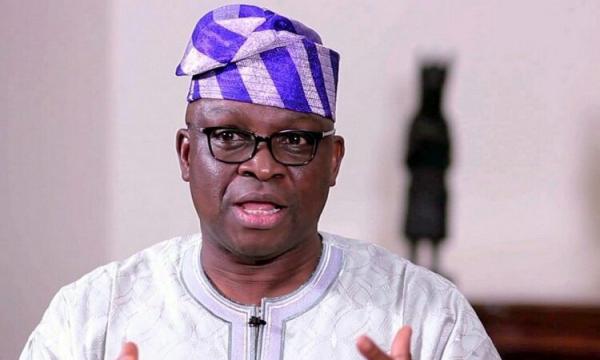
LATE CHIEF M.K.O ABIOLA
REMINISCING ON JUNE 12 AS A KID
I was barely six years old when the nation was embroiled in the uprisings that aborted the third republic. Ibadan was miles away from actual hotspot of the chaos but was still gripped at the jugular. I was in the middle of the uneasiness which the entire nation was plunged in and felt every dose of the tension in my unheralded neighbourhood. In as much as I felt the heat, the import of the political unrest ravaging the country was way beyond what I could comprehend. I nevertheless had a whiff of what was happening in the political terrain. The key political players comprising of President Ibrahim Badamosi Babangida (IBB), General Sanni Abacha, Chief Ernest Shonekan and late Chief Moshood Kashimawo Olawale Abiola were all within the confines of my orientation.
Even as a kid, President Ibrahim Babangida appealed to me more as a villain. I never knew who Diego Maradona was but was quite aware that Ibrahim Babangida was popularly being referred to as Maradona. On few occasions, I latched onto conversations among adults who often described Babangida as one with a slippery personality. The term 419 was a lexicon strongly associated with his person. It wasn’t as if I understood what it meant in the most encompassing sense but at least, I knew it was being used to describe bribery.
A bizarre experience still etched in my memory occurred on a Saturday when my family embarked on an outing. We suddenly ran into an angry mob chanting ‘Babangida must go’. A bonfire was set in the middle of the road as angry youths displayed their restiveness. Upon alighting another set of protesters gallivanting around a coffin set on a roundabout, I clutched my mother in terror. Fastened on the sides of the coffin were photographs of Ibrahim Babangida. The trepidations enveloped my parents as well and we had to return home.
Chief Ernest Shonekan was also someone I often heard people making mention of. I didn’t really know much about him apart from the fact that Ibadan locals always associated him with Ijoba fidi he, a Yoruba term meaning interim government. That made little or no sense to me as a kid and he soon fizzled out of my thoughts.
General Sanni Abacha! This was a man I never liked during my salad days. He struck me as a despot. His face was every other thing but alluring and never for once did I hear people making savoury remarks about him. One peculiar feature that characterized the early period of his imperial reign was revolt. It was a common thing during those days to see flowers and grasses strapped around the wipers and side mirrors of most vehicles. Being a primary school lad, the grandiose yarn spun among my classmates was that those grasses ensured that vehicles do not explode. We even went as far as propounding that any vehicle without these grasses would suddenly explode on the expressway. Children and their fantasies! In no time, my father also had few leaves strapped around his car’s side mirror. Of course, I was bold enough to tell him what I thought about it and he just laughed. Even if he had belaboured me with the reasons, I doubt if I would have understood him perfectly. Although, I knew he never liked General Sanni Abacha either.
I got a first-hand experience of what bribery meant during the days of General Sanni Abacha. My mother, siblings and I embarked on a journey to Warri for my uncle’s wedding ceremony. It began on an exciting note but later filled me with so much paranoia as we encountered soldiers intermittently. The men in uniform brandished their sophisticated rifles at each check point and had such unfriendly demeanours. After inspecting the luggage in the boot, one of them would then approach the driver for fifty naira denominations or more before the journey could commence again. There were instances where the driver was delayed for longer than necessary probably because he wasn’t willing to do away with the fifty naira subscription. In such situations, my heart would skip a beat for the fear of the unknown. I subconsciously learnt from such experiences that a man with the gun was the one with authority. Such moments really made me nervous and my mum, knowing quite well that her son was a big softie, never hesitated in assuring me that all was well. Other passengers in the vehicle actually did show their resentment but that was after we scaled through each checkpoint.
The last but not the least in the quartet was Chief M.K.O Abiola; who was then one of the richest business mogul and philanthropist in the country. I knew next to nothing about his romance with the military men way back in the eighties and neither was I acquainted with his ascent from rags to riches. My perception about him was that of a man who was extremely loved by his people. His pictures were ubiquitous on just any wall and the S.D.P jingles were very popular on radio. In a show of solidarity, my dad also brought one of his flyers home and pasted it to the wall on our veranda. M.K.O was the only acronym I learnt outside the four walls of my primary one class.
Often times, most people were usually ensconced in lofty conversations about his philanthropy. I once learnt from a conversation between two people that Abiola never ate boiled egg until the age of nineteen. I sincerely can tell how true that was. I was also privileged to watch the music videos of King Sunny Ade, Sir Shina Peters and the late Sikiru Ayinde Barrister who always showered encomiums on him. My dad often sang their lyrics in his solitary moments I soon became an ardent fan of these songs. Most of my peers often enthused that they wanted to be as illustrious as Abiola. I equally nursed such lofty ambition but had to trot it away on the day I carelessly told my mum that I wanted to become a politician in future. She sternly rebuked the dream while my dad was just laughing. I didn’t really understand why she was against it way back then but now I do.
I could also recall how one of my classmates was scolded for singing an inflammatory rhyme with her friends. Excerpts of the rhyme went thus; Abacha pack your load (2ce), Abiola, head of state! She was warned not to recite such rhymes publicly again. We all had a surface orientation of why she was warned but never really understood the enormity of what she did.
The detention of Chief M.K.O Abiola became more of a struggle which reverberated across the length and breadth of the country. One of my dad’s friend who resided in Lagos had to relocate to Ibadan due to the intensity of the crisis in Lagos. Meanwhile I never knew who Simbiatu Abiola was until she was killed in a state sponsored murder. The late Sikiru Ayinde Barrister composed a song in memory of her and to express his condolences to the late Chief Abiola who was then in detention. The vendor whom my dad often patronised suddenly stopped coming for reasons I never knew. My dad however told me later on that the vendor inflated the rate at which he sold newspapers due to the harsh economic realities of that period. A distant relative of mine who was still an undergraduate at the University of Ibadan relocated to our place and stayed with us for almost a year before he returned to school.
There were few occasions when my mum also had to resort to fire woods in preparing dinner. There were times when my dad would leave home very early in the morning in search of petrol to fuel his car. The petrol scarcity left his vehicle redundant for so long and it got to a stage when he had to make do with a source he called black market. Our gas cooker was moribund as well. The primary school which I attended also went on some impromptu holidays during the political struggle. The alteration in the academic calendar nevertheless afforded me more time to play with my peers. Though, there were days when my mum restrained us from going out due to the volatility of that era. We however knew that the reason why we didn’t go to school was because of June 12; a day synonymous with the mandate of the late Chief M.K.O Abiola. I was as carefree as any other kid and was rarely interested in news reports. Be that as it may, I recall that most reports aired on television were usually on riots, protest, brigandage and other forms of civil disobedience.
On the fateful evening of June 8, 1998, a step uncle of mine living with us suddenly became frenzied. He couldn’t hide the flush of excitement as he whispered to me that he overheard the next door neighbour telling my mother that Abacha was dead. Impossible! I couldn’t believe it. The name Abacha seemed more like that of an immortal dynasty. I ran to my mother to verify the hearsay but she warned me to keep mum knowing quite well that I could be careless with the slightest information at my disposal. I hurried to the balcony and saw most my neighbours making nervy gestures at one another. The rumour was sizzling but no one had the guts to blow it out of proportion. The deja-vu kept welling up among us. Had it been the power supply was not interrupted, we would have confirmed the authenticity of the story without much fuss.
My dad returned home half past six in the evening confirming that he also learnt of the same story amid scepticism. The power supply was finally restored few minutes before 7 p.m. I jumped with the celerity of a playful puppy and put on the television in a bout of anxiety. The first picture that nipped our gaze was the remains of General Sanni Abacha wrapped in a white cloth and being ferried into a car. The news pierced our doubts like lightening; the military head of State, General Sanni Abacha is dead!
Perhaps, I was sunk momentarily in a reverie but it seemed I saw this tinge of relief in the mood of the news broadcaster. My parents didn’t show any form of remorse and neither were some of my neighbours who stopped by to show their amazement. The natural emotion bound to trail the death of an individual is one of remorse and sorrow but alas, it was the opposite in this case. What an irony! One memorable thing I would never forget on that day was that few minutes after the news was broadcast, the television station (which I wouldn’t want to mention) aired a music titled ‘Halleluyah day’. Sequel to this, the rain set in and the heavy downpour led to the interruption of the power supply again. I went to bed with an inexplicable dose of excitement as it rained, rained and rained!
KADIRI TOLANI
08176514295 (SMS ONLY)
kadiritito@.gmail.com




















